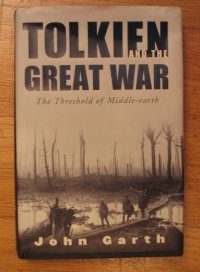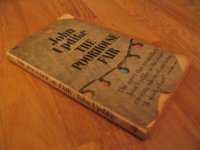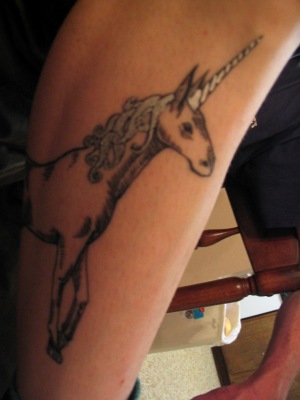tolkien twain kingston
am still reading the Tolkien/WWI bio. it's incredibly interesting, altho i suspect absolutely only if you're a pretty serious tolkien nut. if the only elvish you know is in the movies, you probably won't be interested. it's actually kindled a desire to read, who would have thought it, some WWI history books, and while i'm at it, i should really just read world history again. does Zinn have a world history book ?
michelle got me Puddinhead Wilson, i think to make fun of me. i was enjoying it quite a bit until i lost it. i think it's under the bed. i'm approaching the decision that Twain's reputation as a racial activist is largely undeserved. this is solely from light readings of his books, mind, not any serious research. as an author he strikes me as first and foremost a humorist, and all other themes are distinctly subservient. if it's funny to show the hypocrisy of whites, he'll write it. if it's funny to show the ignorance of slaves, he'll write it. perhaps his interest shifted by the time he wrote Huck Finn, but his other writings don't really seem to hold up the mantle of racial radical. i welcome dialogue on this.
have started Maxine Hong Kingston's famous Woman Warrior. I feel i may have tried reading this before. She writes so well that i partially wish i were chinese american and could feel more relevancy to my life. Why wasn't Maxine Hong Kingston born a white middle class computer geek instead of confused chinese american second-generation girl ? So, it's hard for me to pay attention for whole chapters, but each page is a pleasure.
god that's funny.
michelle got me Puddinhead Wilson, i think to make fun of me. i was enjoying it quite a bit until i lost it. i think it's under the bed. i'm approaching the decision that Twain's reputation as a racial activist is largely undeserved. this is solely from light readings of his books, mind, not any serious research. as an author he strikes me as first and foremost a humorist, and all other themes are distinctly subservient. if it's funny to show the hypocrisy of whites, he'll write it. if it's funny to show the ignorance of slaves, he'll write it. perhaps his interest shifted by the time he wrote Huck Finn, but his other writings don't really seem to hold up the mantle of racial radical. i welcome dialogue on this.
have started Maxine Hong Kingston's famous Woman Warrior. I feel i may have tried reading this before. She writes so well that i partially wish i were chinese american and could feel more relevancy to my life. Why wasn't Maxine Hong Kingston born a white middle class computer geek instead of confused chinese american second-generation girl ? So, it's hard for me to pay attention for whole chapters, but each page is a pleasure.
TOM SWIFTY OF THE DAY
"We've got to get rid of that Danes girl!" Tom declared.
god that's funny.



